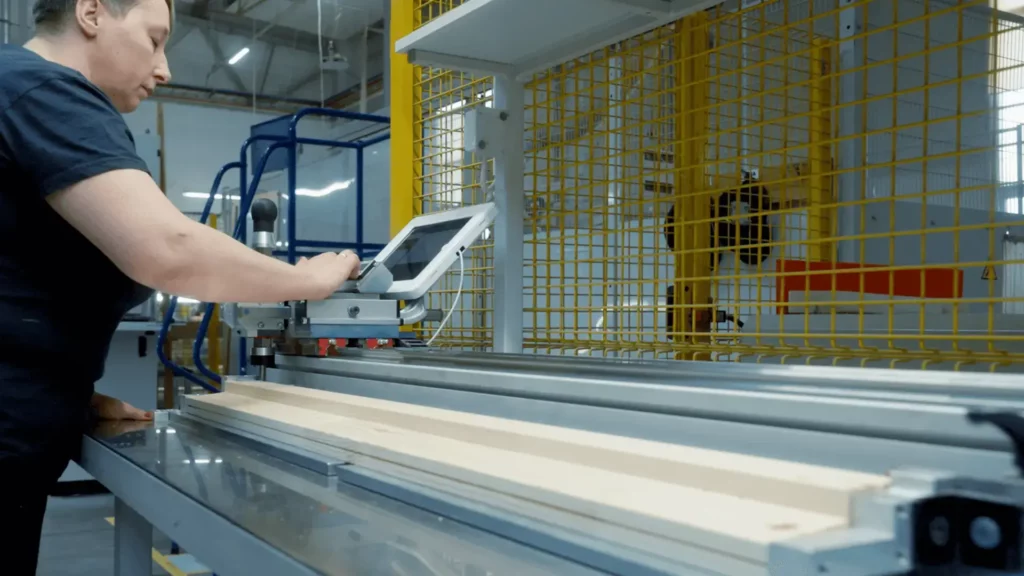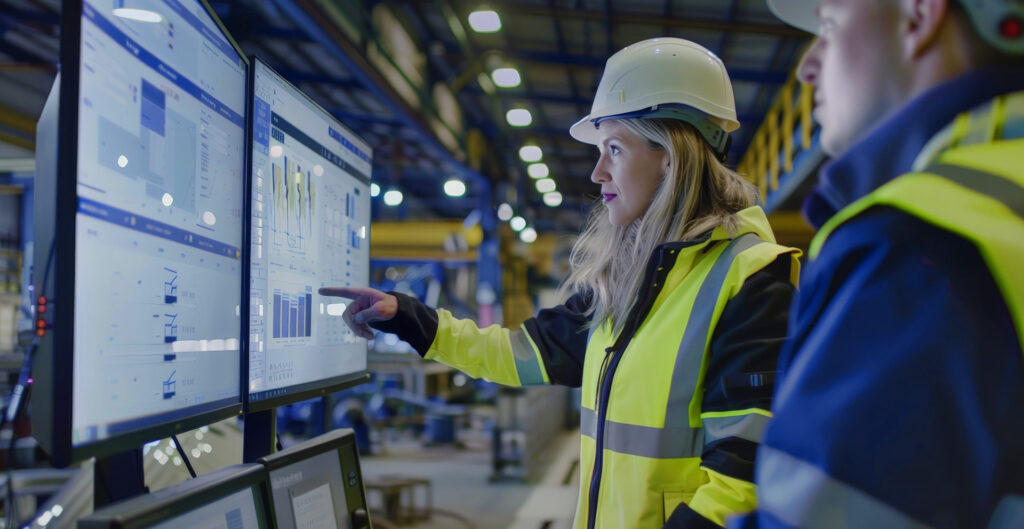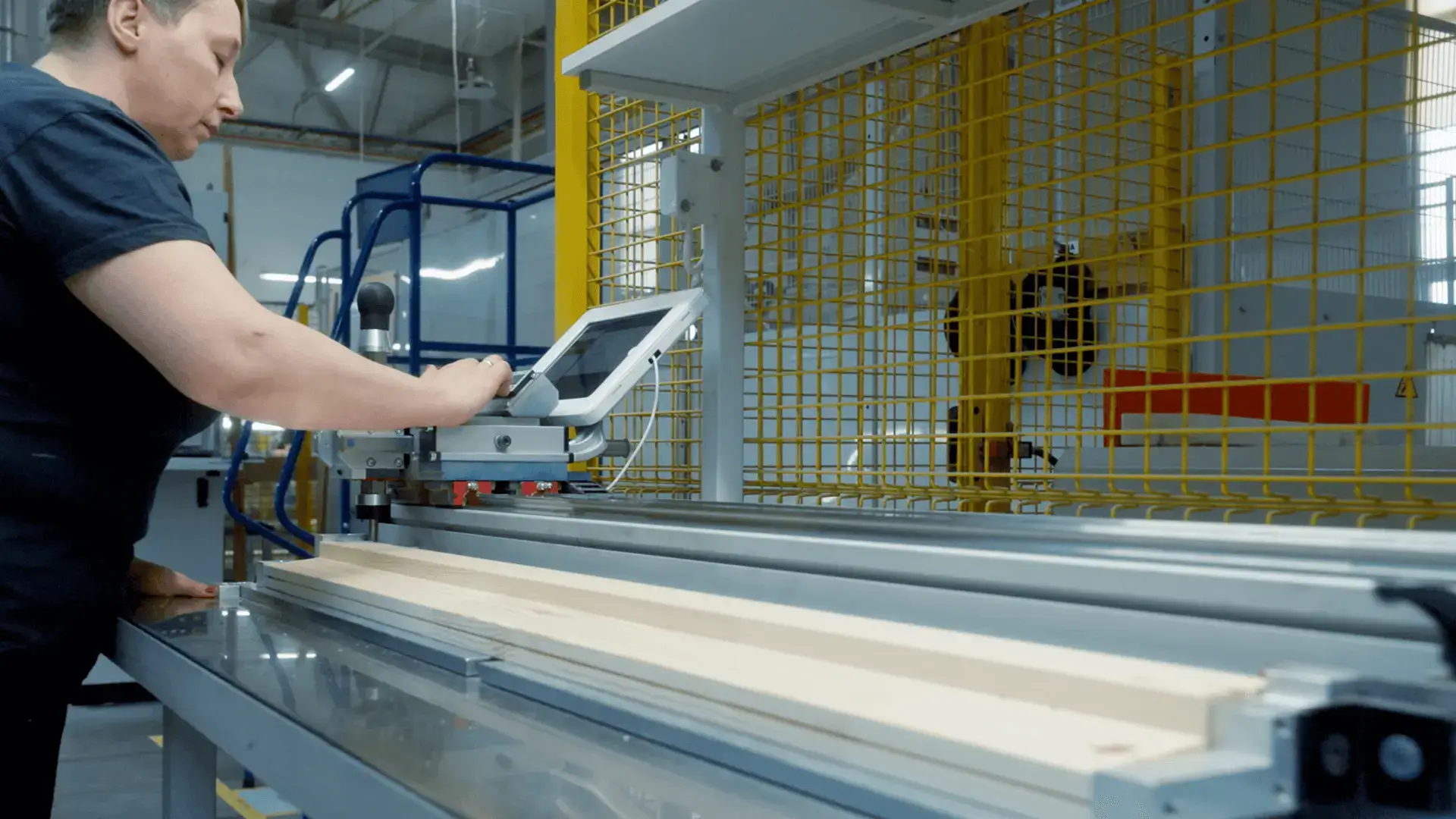
Manufacturing Utilities in the Age of Digital Revolution, Part 1: Energy Efficiency

Grzegorz Fijałka

Tomasz Ziąbka
Chairman of the Board at ABZ Consulting Sp. z o.o.
The dynamic rise in energy prices affects everyone, both individual consumers and institutional entities. Manufacturing companies, in particular, feel the impact of high energy prices. Complex regulations, additional fees, and EU requirements pose a significant challenge to Polish enterprises. Hence, the interest in renewable energy sources and a focus on energy efficiency have become imperative in recent times.
It is worth noting that manufacturing utilities encompass more than just electricity or gas. These also include process water, process gases, compressed air, heat, steam, as well as other fuels and energy sources. Often, utilities are perceived as a substantial portion of overall costs, which is understandable, especially in today’s environment of continuously rising costs. Nevertheless, utilities are essential for the functioning of any manufacturing plant. In the simplest of terms – no electricity means no production.It’s crucial to recognize that utilities significantly influence the availability and stability of manufacturing processes, ultimately impacting the quality of the product.
Presently, we live at the intersection of two powerful realms – the world of energy and the world of information. The development of the latter is particularly visible in the current ranking of the world’s largest companies, where IT companies dominate.
The trend of digitalization is notably apparent in the industry, taking the form of the Fourth Industrial Revolution that has been in the spotlight for a considerable period. This revolution is dominated by information technology, and Industry 4.0 tools function robustly thanks to the accessibility of IT.
Does this mean that the era of energy resources is coming to an end? Not necessarily. Instead, we observe that technologies related to energy are experiencing even more rapid growth. How rapid exactly? Let’s examine two charts illustrating how the dynamics of change could appear and how they manifest in reality.

While these charts might seem similar at firstglance, the first one represents a span of 200 years, and the second only 15 years. The first chart depicts global energy consumption, and the second one illustrates the demand for data over a 15-year period (with the last years as a projection).
Comparing values for the same periods on both charts, we see that energy demand in the second decade of the 21st century increased by 10%, whereas the demand for data in the same period grew 20-fold.
Both examples underscore how profoundly information technologies and digitalization have come to dominate our lives.
Examining the prices of primary energies that influence the final energy, one observes that the price fluctuations of 50-75% over recent years, as alarming as they seemed then, turned out to be insignificant compared to the past year. After the unprecedented event of the war outbreak in Ukraine, there was even a 10-fold price increase at peak moments, severely disrupting the functioning of many companies.

While we consider only wholesale rates here, the price of final energy and usable energy in terms of electricity is influenced by various other elements, making the pricing issue even more complex. For instance, a capacity fee has recently been introduced.
Wholesale rates give a sense of the general trend, but the final price that companies have to pay is influenced by numerous factors. The remaining components of the electricity purchase price include CO2 emission allowances, excise, costs of certificates, VAT, and others. We also need to consider distribution costs, which depend on factors such as the region or distributor, ordered power, or consumption structure.

It is the companies that are most affected by rising costs. In the case of private consumers, the market is partly controlled, reducing the dynamic impact of the aforementioned factors.
Will we pay less for energy? Of course, there is no definitive answer to such a question because there are too many variables at play. However, we can analyze the factors that influence prices. Let’s refer to pre-war prices because, at present, the European market has demonstrated resilience – gas reserves and the amount of electricity, despite the cold, have proven sufficient, and peak prices are gradually returning to reasonable levels.

Energy consumption in Poland, as well as in Europe and globally, continues to rise. A positive aspect is that in Poland, in recent months or even years, the market for renewable energy sources has experienced dynamic growth, with the installed capacity of photovoltaic power plants in Poland significantly increasing. This is an important trend that will undoubtedly impact energy prices.

An essential factor that significantly influences electricity prices is the cost associated with emission allowances, which has increased substantially in recent years. Although it is worth noting that this money stays in Poland, contributing to the country’s budget, every company is obliged to bear this cost.

Answering the question of whether energy will become cheaper, attention must be drawn to the aspect of energy security. In the long run, the question arises: Will Poland run out of fossil fuels? The answer is obvious – yes, it’s only a matter of time or, rather, how long it will be profitable for us to extract fossil fuels.
If the extraction of fossil fuels is going to become unprofitable in the long run, are there any alternatives? Certainly. An interesting fact is that the amount of energy from the sun reaching the Earth in a single hour equals the amount of energy humanity consumes in a year. Therefore, even though ecological issues require improvement and the energy transition is costly, it must happen.
The war in Ukraine and high energy prices have significantly contributed to the rapid growth of renewable energy markets. There are reports that nuclear power plants will be built in Poland, and there is optimism about new technologies, such as hydrogen energy. Another positive development is the achievement of the first net-positive nuclear fusion. While the implementation of such solutions is still a matter of decades, it’s crucial to continue in this direction.

Poland has recently diversified its gas supply, and there are HUB connections for electricity trade. This is crucial because renewable energy can be temperamental, depending on the weather. Therefore, connections with neighboring countries to balance potential shortages or sell excess energy are vital for energy security.
Energy efficiency is environmentally friendly, constituting one of the most cost-effective “energy sources”. It is the key to reducing the cost of final energy, which is the one we pay for. In forecasts for the German market, energy efficiency is presented as an additional fuel, currently considered one of the most advantageous energy sources.

Source: https://www.ise.fraunhofer.de/en/publications/studies/cost-of-electricity.html
It is projected that by 2040, the costs of extracting fossil fuels, especially coal, will be so high that it will cease to be profitable. Although coal still dominates electricity production, its share is rapidly decreasing.

The structure of electricity production in 2021 (based on the data by Polskie Sieci Elektroenergetyczne)
As a member of the European Union, Poland has pledged to achieve carbon neutrality by 2050. Theoretically, it might seem like there is plenty of time to meet this requirement. However, considering past actions and investments in the energy market, time is running out.
Since 2018, the Energy Efficiency Directive (EED) has been in effect, introducing new goals related to improving energy efficiency. It is evident that many Polish companies are actively pursuing such initiatives. The year 2030 will be significant, along with the “Fit for 55” initiative, which is a package of legal acts aimed at reducing the emission of carbon dioxide by 55% by 2030, compared to 1990.
These changes will involve reforming the current EU Emission Trading System (EU ETS), including new sectors of the economy in emission allowances, increasing renewable energy targets, applying stricter emission standards for land transport, and introducing a carbon border adjustment mechanism (CBAM) at the EU border to enhance the competitiveness of the EU economy compared to countries without climate policies.
In line with EU plans, Poland is set to undergo numerous changes in the coming years. The most significant ones will likely revolve around issues such as:
- Energy audits for businesses consuming over 2.7 GWh annually;
- Mandatory implementation of an Energy Management System for businesses consuming over 27.7 GWh annually;
- Calculating the carbon footprint for products and the introduction of the CBAM tax on goods imported to the EU, whose production is associated with high CO2 emissions.
Experts forecast that achieving more ambitious national and sectoral renewable energy targets may be challenging for us. Currently, Poland lags behind the rest of Europe in using renewable energy for final energy consumption. However, it is the only right direction. Soon, there will be no other choice, as the extraction of fossil fuels becomes unprofitable. For those who care about energy security and lower energy prices, it’s essential to take an interest in energy efficiency and ways to implement it in their businesses.
Authors: Tomasz Ziąbka, CEO at ABZ Energia | Chairman of the Board at ABZ Consulting Sp. z o.o.

Grzegorz Fijałka, Partner | Business Development, ImFactory


Grzegorz Fijałka completed his studies at the Faculty of Mechanical Engineering at Cracow University of Technology, specializing in Automation of Manufacturing processes). He also holds postgraduate degrees in production management from Tischner European University in Cracow, as well as risk management, forecasting, strategic planning and foresight from Collegium Civitas in Warsaw. Grzegorz is an expert in industrial software, 4.0 technology, and Digital Transformation Roadmap for Manufacturing, among others.
Throughout his career, he has held various positions, ranging from Technical Support and Sales Specialist, through coaching and Project Manager, all the way to the President of ASTOR Consulting, developed from the Account Management formula at ASTOR. Currently, as a Partner at ImFactory, he is responsible for the company’s overall business development. He is passionate about exploring new technologies, fostering creative ideas and embracing agile operations.

Chairman of the Board at ABZ Consulting Sp. z o.o.
Chairman of the Board at ABZ Consulting Sp. z o.o.
Tomasz Ziąbka has over 20 years of managerial experience within industries related to modern technologies and energy aspects, with a particular focus on energy efficiency. He is recognized as a KSU expert in the fields of innovative projects and energy efficiency. Tomasz graduated from the Faculty of Electronics and Electrical Engineering at the Lodz University of Technology, holding a Master of Science degree in Automation and Robotics. Additionally, he is a graduate of the MBA program, accredited by the University of Lodz and the University of Maryland. Tomasz has personally overseen the successful completion of several dozen auditing and advisory projects, specializing in the energy efficiency of large enterprises.
See also
Want to learn more? Visit our Knowledge Base, where you'll find articles and webinars by experts to expand your knowledge.
Check if Digital Transformation is the Answer to Your Company's Needs
The Free Consultation Process:


































